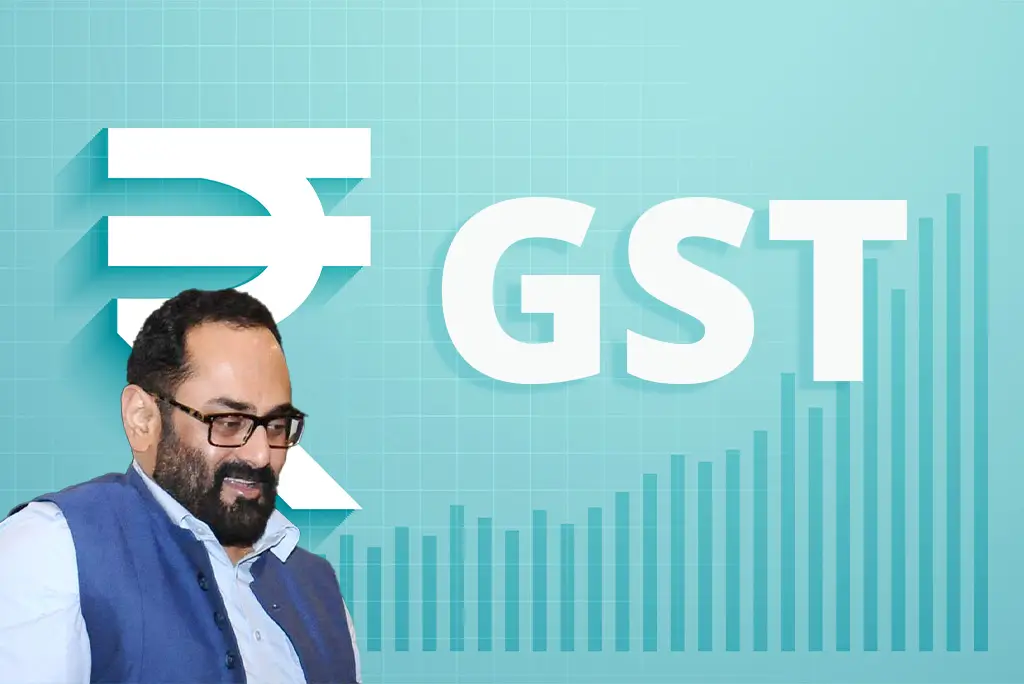Rajeev Chandrasekhar, Minister of State for Electronics and IT, stated that MeitY might urge the GST Council to reconsider the 28% tax on total pool value in online gaming platforms.
The request will follow the establishment of a regulatory framework for the sector.
Reportedly, The GST Council’s recent decision imposes a 28% GST on online gaming, casinos, and horse racing. Start-ups express concern over potential 1000% increase in net taxes for firms.
The decision may lead users to illegal betting platforms and deter Indian gaming company investors.
The online gaming industry shows displeasure towards the uniform tax imposition. Indian gaming companies fear reduced investor funding due to the new tax policy.
The gaming industry urges the government to reconsider the decision, fearing significant harm. Approximately 130 companies, associations, and industry bodies made the representation.
The announcement sparked representations to seek a revision of the decision. The government received representations from numerous industry stakeholders seeking a rethinking of the decision.
Regulatory Framework for online gaming
Chandrasekhar mentioned being in the early stages of creating a regulatory framework for online gaming. The process began in January 2023 to establish a predictable and sustainable framework.
He stated MeitY’s plan to approach the GST Council for reconsideration after the framework is in place. The statement was made during a CNN News18 Townhall event. In April, MeitY notified rules for online gaming intermediaries.
The rules allow for the creation of self-regulatory bodies for determining permissible online games. However, the self-regulatory bodies are yet to be formed.
The Minister highlighted the GST council as a federal organization representing state governments. State governments and finance ministers jointly created the GST framework over three years.
He acknowledged the ongoing framework creation process that began in January 2023. The Minister emphasized recognizing the efforts despite any disagreements with the findings.
Players also expressed Dissatisfaction
Online gaming players express disappointment over the 28% tax imposition on real-money games. A group of 127 players, including the All India Gaming Federation and E-Gaming Federation, conveyed their concerns.
They claim to have created over 1 lakh direct jobs with expectations of 5 lakh jobs by 2025. The decision’s aftermath may lead to massive layoffs impacting the youth and engineering talent. The industry faces challenges due to the GST valuation decision.
The tax decision could directly affect job prospects in the sector. The open letter highlights the industry’s concerns about potential job losses.
Impact of 28% GST on Gaming Industry
The online gaming industry has grown exponentially, attracting millions of players globally. Fantasy gaming, a popular genre, involves virtual teams based on real-world athletes. The 28% tax on online gaming concerns fantasy players.
The tax imposes a financial burden, raising entry fees and reducing prize pools. Higher costs may deter casual players, leading to decreased engagement and revenue. Players may shift to tax-free gaming genres or platforms.
This shift could lead to a reduced player base and engagement in fantasy gaming. Small stake players may be disproportionately affected, reducing potential winnings.
New players might be discouraged from joining, impacting the fantasy gaming community. A gap between high-stake and low-stakes players may arise. This imbalance could disrupt the fantasy gaming ecosystem.
The GST implementation poses regulatory challenges. Tracking and collecting taxes from various platforms can be complex. International platforms operating in multiple jurisdictions face challenges in enforcement and compliance.
The regulatory process may strain the resources of regulatory bodies. A streamlined approach is needed for consistent implementation across regions and platforms. Inconsistencies and loopholes could arise, complicating the regulatory landscape.
